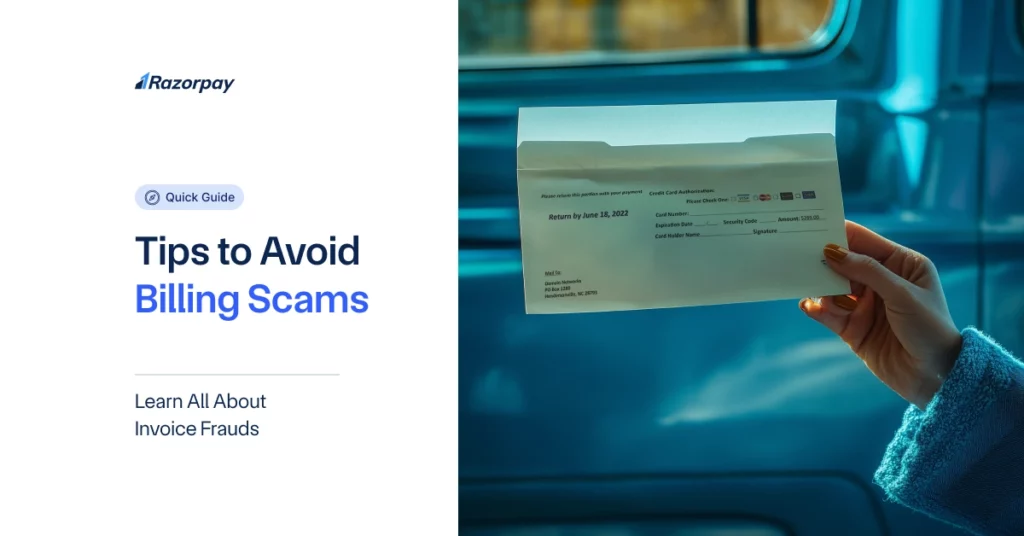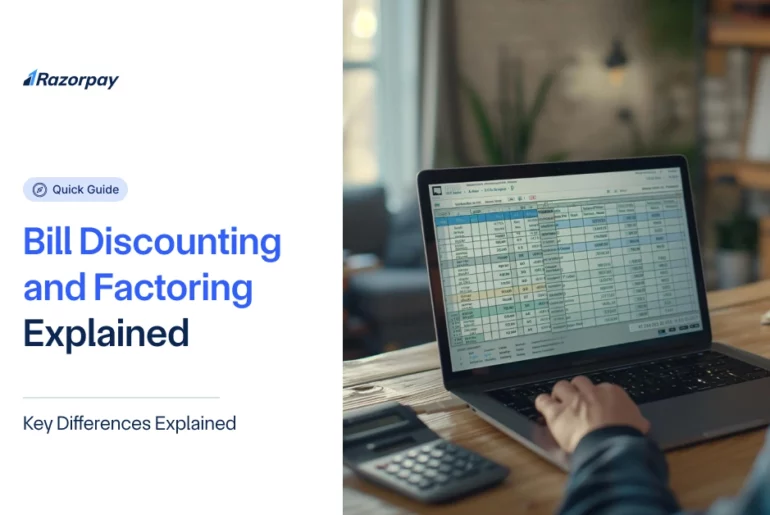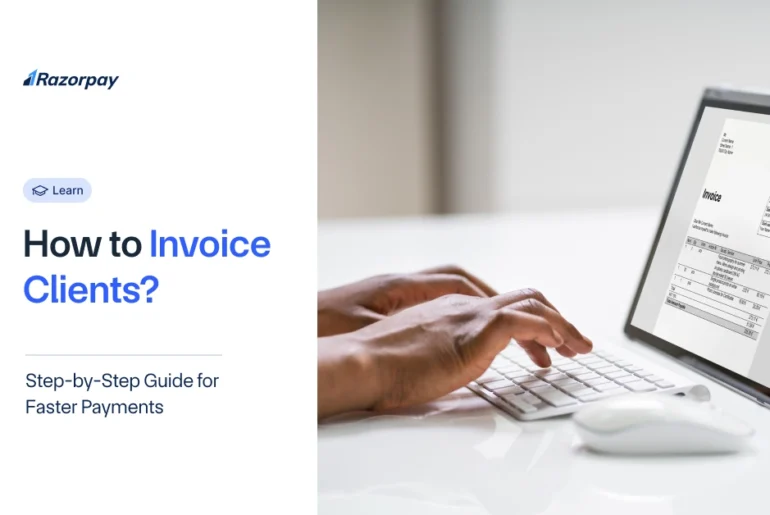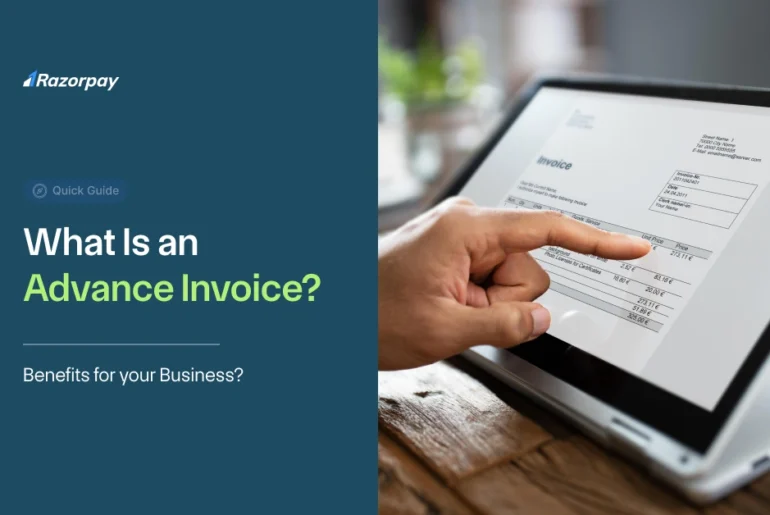Invoice fraud is a growing threat to businesses worldwide, including India. Scammers manipulate invoices to trick companies into making payments to fraudulent accounts. These scams can lead to financial losses, disrupt operations, and damage relationships with vendors.
Understanding how invoice fraud works and implementing preventive measures is crucial for safeguarding your business against financial fraud.
Table of Contents
What Is an Invoice Scam?
Invoice scams occur when fraudsters pretend to be legitimate vendors or trusted contacts to deceive businesses into paying fake or altered invoices. Common tactics include:
1. Fake Invoices:
Fraudsters create invoices that look authentic but are entirely fake.
2. Bank Account Changes:
Scammers claim that vendor bank details have changed and redirect payments to fraudulent accounts.
3. Impersonation:
Fraudsters pose as company executives or vendors using spoofed emails or calls.
4. Urgency Tactics:
Scammers pressure businesses to make quick payments, bypassing standard verification processes.
Common Types of Invoice Fraud
Businesses must be aware of different types of invoice fraud, which can originate from external cybercriminals or internal threats like dishonest employees.
1. Fake or Altered Invoices
Fraudsters send counterfeit invoices or modify legitimate ones by changing payment details.
2. Email Interception
Hackers intercept vendor communications and alter payment instructions before forwarding them to the business.
3. Business Email Compromise (BEC)
Scammers impersonate executives or vendors via email, requesting payments for fake invoices.
4. Overpayment Scams
Fraudsters send inflated invoices and later request refunds for the “overpaid” amount, directing it to their accounts.
5. Account Takeover Fraud
Hackers gain access to vendor accounts and send fraudulent payment requests using legitimate credentials.
6. Insider Fraud
Dishonest employees exploit internal systems to approve fake invoices or divert funds for personal gain.
Related Read: Fraud Analytics: A Guide to Preventing Financial Fraud
How to Spot Fake Invoices: Key Warning Signs
Detecting fake invoices requires vigilance and attention to detail. Look out for these warning signs:
1. Suspicious Contact Information:
Vendor details don’t match previous records or seem unusual.
2. Updated Payment Details:
Changes in bank account information without prior verification.
3. Discrepancies in Accounting Data:
Mismatches between invoice details and your accounting system records.
4. Urgent Payment Requests:
Invoices accompanied by urgency or pressure tactics bypassing normal approval processes.
5. Unverified Services:
Invoices for services not rendered or goods not delivered.
6. Inflated Invoice Amounts:
Unusually high amounts or rounded-off figures that don’t match previous billing patterns.
How Can Businesses Prevent Invoice Fraud?
Preventing invoice fraud requires a combination of smart practices and technology-driven tools:
1. Verify Vendors
Always confirm any changes in payment details directly with vendors through secure communication channels like phone calls or official emails.
2. Dual Approvals
Require multiple levels of authorization for high-value transactions to ensure legitimacy.
3. Employee Training
Train employees on recognizing invoice fraud tactics and following proper verification procedures.
4. Use Automation Tools
Accounts Payable (AP) automation software can help detect anomalies and flag suspicious invoices.
5. Secure Payment Processes
Implement strong payment controls, encrypt financial transactions, and restrict access to sensitive information.
Steps to Take If You Detect Invoice Fraud
If you suspect invoice fraud, act quickly:
1. Stop Payments Immediately:
Halt transactions related to the suspicious invoice.
2. Notify Banks:
Inform your bank about the fraudulent activity and request assistance in recovering funds.
3. Report Internally:
Alert your finance team and document the incident thoroughly.
4. File a Complaint:
Report the fraud case to local authorities like India’s Cyber Crime Cell.
5. Strengthen Controls:
Review internal processes and implement stricter verification methods.
How AP Automation Can Help Reduce Invoice Fraud
AP automation tools use AI-powered fraud detection to:
- Identify invoice discrepancies.
- Automate approvals and flag anomalies.
- Ensure multi-level verification of payments.
Switching from manual payment methods to digital payments enhances tracking, security, and transparency—making it harder for fraudsters to exploit vulnerabilities.
Conclusion
Invoice fraud is a serious issue that can cause significant financial losses for businesses if left unchecked. By staying vigilant, training employees, implementing secure payment processes, and leveraging AP automation tools, Indian businesses can effectively protect themselves from these scams.
As digital transactions continue to grow in India’s business landscape, adopting preventive measures will not only safeguard your company’s finances but also build trust with genuine vendors and partners.
Frequently Asked Questions (FAQs)
1. How common is invoice fraud?
Invoice fraud is increasingly common, especially with digital transactions and manual accounts payable systems.
2. Which payment method is most targeted by scammers?
Bank transfers are often targeted since they’re easy for fraudsters to manipulate.
3. How can I verify an invoice before paying?
Check vendor contact information, payment details, invoice amounts, and services rendered against previous records or contracts.
4. What should my company do if we receive a fake invoice?
- Stop payments immediately.
- Notify your bank.
- Report the incident internally.
- File a complaint with authorities.
- Strengthen internal controls.
5. Are small businesses at risk of invoice fraud?
Yes! Small businesses are more vulnerable because they may lack robust security measures or automated detection systems.
6. How can I train my employees to detect invoice fraud?
Conduct regular workshops, share case studies, and implement real-time invoice verification processes as part of their training.
7. What industries are most affected by invoice fraud?
Industries like finance, healthcare, IT, and manufacturing are commonly targeted due to high-volume transactions and vendor interactions.
8. Can invoice fraud be completely prevented?
While it’s challenging to eliminate invoice fraud entirely, businesses can significantly reduce risk by implementing strong internal controls, using AP automation, and training employees.
9. What legal actions can be taken against invoice fraud in India?
Businesses can report fraud cases to India’s Cyber Crime Cell, RBI, and local law enforcement agencies to take legal action against scammers.



